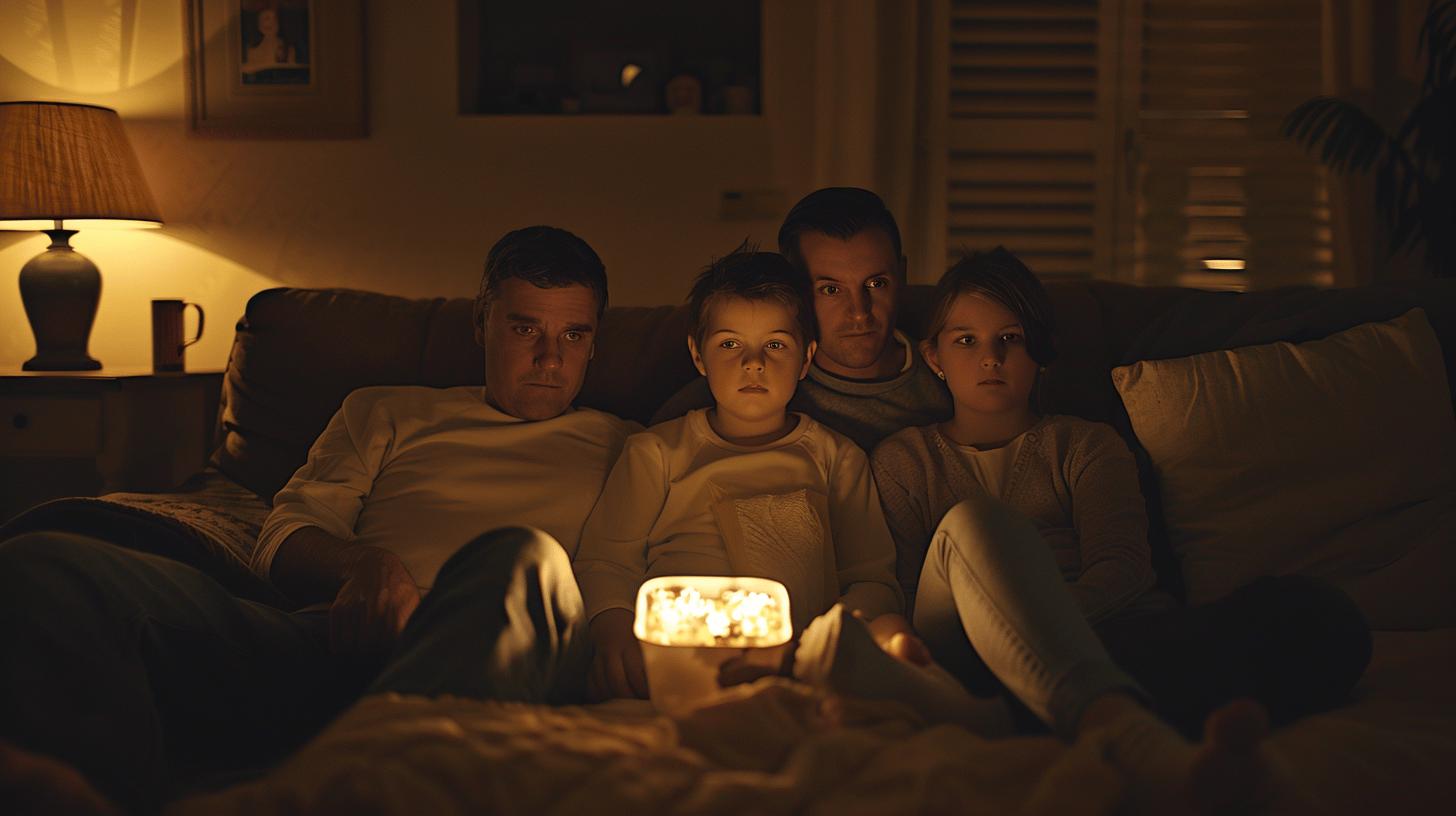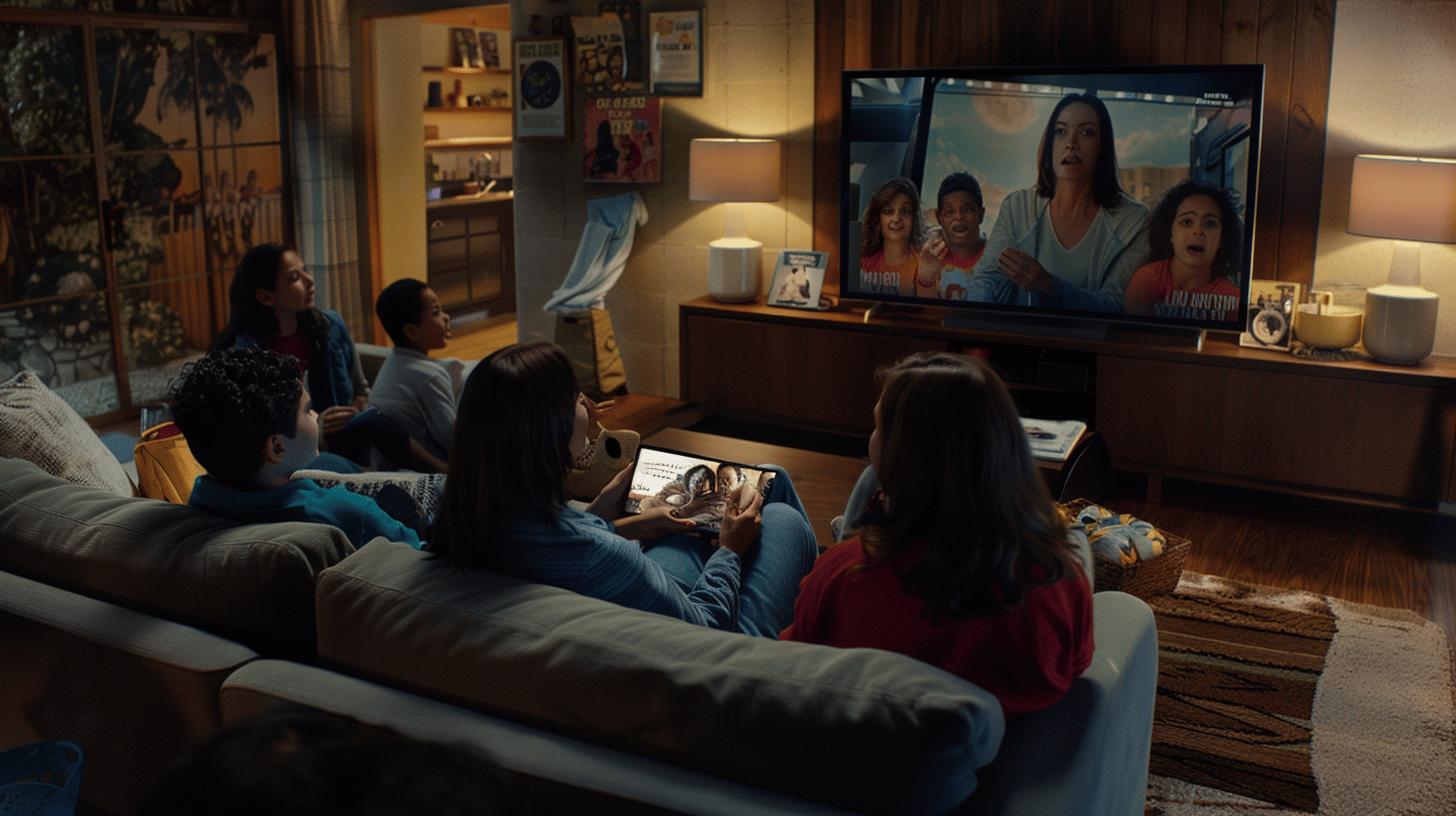What makes a great parent on screen? When it comes to portraying nuanced parenting styles, movies often hit the mark with authoritative parenting. This style, marked by high expectations and emotional support, shapes characters into confident and independent individuals. In our exploration of "Authoritative Parenting in Movies: Key Examples," we'll dive into classic and animated films that highlight this approach. Discover how George Banks in "Father of the Bride" or Elinor in "Brave" exemplify characteristics that lead to well-rounded children. Ready to uncover some impactful parenting lessons from your favorite movies? Let's get started!
Understanding Authoritative Parenting in Movies
Authoritative parenting is a balanced approach that combines high expectations with emotional support. It is significant because it fosters independence and responsibility in children. This parenting style is characterized by clear rules, consistent discipline, and nurturing communication, which together create a supportive environment for growth.
In movies, authoritative parenting is often depicted through characters who set firm boundaries while maintaining warmth and understanding. This balance allows children to feel secure and valued, encouraging them to develop self-discipline and confidence. By highlighting this approach, films can provide valuable insights into effective parenting practices.
Key Characteristics of Authoritative Parenting:
- Clear rules and expectations
- Consistent and fair discipline
- Open and nurturing communication
- Encouragement of independence and self-reliance
- Emotional support and understanding
Studies show that authoritative parenting leads to well-adjusted, confident children. Characters raised with this style often display resilience, adaptability, and strong social skills. They benefit from the structure and support provided by their parents, enabling them to navigate challenges effectively. This positive portrayal in movies reinforces the idea that combining high expectations with emotional support is crucial for healthy child development.
Classic Examples of Authoritative Parenting in Movies

Authoritative parenting, characterized by a blend of high expectations and emotional support, is a recurring theme in many films. These movies provide a lens into how this balanced approach can lead to positive outcomes for children and families.
In "Father of the Bride" (1991), George Banks, played by Steve Martin, is a quintessential example of an authoritative parent. He sets clear expectations for his daughter while offering unwavering emotional support. Similarly, in "The Pursuit of Happyness" (2006), Will Smith's character, Chris Gardner, exemplifies authoritative parenting by balancing high expectations with deep emotional connection and support for his son. "The Blind Side" (2009) showcases Leigh Anne and Sean Tuohy, who guide Michael Oher with a nurturing yet firm approach, ultimately steering him towards success.
| Movie Title | Key Parenting Traits | Outcomes |
|---|---|---|
| Father of the Bride (1991) | Supportive, firm, clear expectations | Strong family bonds, daughter’s confidence |
| The Pursuit of Happyness (2006) | High expectations, emotional support | Child’s resilience, father’s success |
| The Blind Side (2009) | Nurturing guidance, firm boundaries | Michael’s academic and athletic success |
These films highlight the positive impacts of authoritative parenting. George Banks’ supportive yet firm approach fosters his daughter’s confidence and independence. Chris Gardner’s balance of high expectations and emotional support builds his son’s resilience. The Tuohys’ nurturing guidance and firm boundaries help Michael Oher achieve academic and athletic success. These examples underscore how authoritative parenting can lead to well-rounded, successful individuals.
Authoritative Parenting in Animated Films
Animated films are powerful tools for showcasing parenting styles, using vibrant storytelling to depict complex dynamics. These films often highlight the balance between guidance and emotional support, key elements of authoritative parenting, making them accessible and engaging for both children and adults.
"Inside Out" (2015) portrays authoritative parenting through Riley's parents as they navigate her emotional turmoil. They balance guidance with understanding, ensuring Riley feels supported even during difficult times. Similarly, "Brave" (2012) features Queen Elinor, who exemplifies authoritative parenting by fostering Merida's independence and responsibility while maintaining clear expectations and rules.
3 Key Lessons on Authoritative Parenting from Animated Films:
- Balance guidance with understanding.
- Foster independence while maintaining clear expectations.
- Provide emotional support during challenging times.
Comparing Authoritative and Authoritarian Parenting in Movies

Authoritative parenting balances high expectations with emotional support, fostering independence and responsibility in children. In contrast, authoritarian parenting imposes strict rules with little warmth, often leading to compliance out of fear rather than understanding.
Mufasa in "The Lion King" exemplifies authoritative parenting. He sets clear expectations for Simba and provides unwavering emotional support, guiding him through life's challenges with wisdom and love. On the other hand, King Triton in "The Little Mermaid" represents authoritarian parenting. Triton enforces strict rules and exerts control over Ariel without offering the same level of emotional support, leading to conflict and rebellion.
4 Key Differences Between Authoritative and Authoritarian Parenting:
- Emotional Support: Authoritative parents provide emotional support, while authoritarian parents show little warmth.
- Rule Enforcement: Authoritative parents set clear rules with explanations, whereas authoritarian parents impose rules without discussion.
- Child Independence: Authoritative parenting fosters independence, while authoritarian parenting restricts it.
- Discipline Approach: Authoritative parents use consistent and fair discipline, while authoritarian parents rely on strict punishment.
The impact of these parenting styles on child development is significant. Children raised with authoritative parenting, like Simba, tend to be well-adjusted, confident, and resilient. In contrast, children under authoritarian parenting, like Ariel, may struggle with self-esteem and independence. This comparison highlights the importance of balancing high expectations with emotional support in fostering healthy development.
Impact of Authoritative Parenting on Character Development in Films
Authoritative parenting often leads to well-rounded, confident, and resilient characters in movies. This parenting style, which combines high expectations with emotional support, helps characters develop essential life skills and a strong sense of self.
Auggie Pullman in "Wonder" is a prime example of how authoritative parenting influences character development. His parents' supportive yet firm approach fosters his confidence and social skills, helping him navigate the challenges of starting school with a facial difference. Auggie's growth throughout the film showcases the positive outcomes of authoritative parenting, as he becomes more self-assured and resilient.
3 Benefits of Authoritative Parenting on Character Development:
- Enhanced confidence and self-esteem
- Improved social skills and relationships
- Greater resilience and adaptability
Realism and Accuracy of Authoritative Parenting in Movies

Evaluating the realism and accuracy of authoritative parenting in movies is crucial to understand how effectively these portrayals reflect real-life parenting approaches. Expert opinions suggest that many films accurately depict authoritative parenting, providing valuable insights into its practical application.
Movies like "King Richard" and "Instant Family" are often praised for their realistic portrayals of authoritative parenting dynamics. In "King Richard," the character of Richard Williams, played by Will Smith, exemplifies the balance of high expectations and emotional support in guiding his daughters, Venus and Serena Williams, to success. Similarly, "Instant Family" showcases the journey of Pete and Ellie, who adopt three siblings and navigate the challenges of fostering independence while maintaining firm boundaries and emotional support.
| Movie Title | Expert Opinion | Accuracy Rating |
|---|---|---|
| King Richard | Realistic portrayal of high expectations and emotional support | High |
| Instant Family | Accurate depiction of fostering independence with firm boundaries | High |
Psychologists emphasize that the portrayals in these films align closely with effective parenting practices. Accurate depictions of authoritative parenting in media are important as they provide realistic and relatable examples for audiences, reinforcing the benefits of this balanced approach in real-life scenarios.
Final Words
In the action-packed world of movies, authoritative parenting stands tall, blending high expectations with emotional support. From George Banks in "Father of the Bride" to Queen Elinor in "Brave," these characters illustrate how balancing firm rules with nurturing guidance fosters well-rounded individuals.
Authoritative parenting depicted in films often leads to well-adjusted, confident characters, mirroring real-life research. This approach not only builds resilience in fictional heroes but also resonates deeply with audiences, offering lessons in effective child-rearing techniques.
Authoritative parenting in movies offers valuable insights into fostering independence and responsibility in children, both on-screen and off.
FAQ
What is an example of authoritative parenting in movies or TV shows?
An example of authoritative parenting in movies is "The Pursuit of Happyness" where Will Smith's character balances high expectations with emotional support.
What Disney movie has authoritarian parenting?
An example of authoritarian parenting in a Disney movie is "The Little Mermaid," where King Triton imposes strict rules with little warmth.
How is Mufasa an authoritative parent?
Mufasa, in "The Lion King," shows authoritative parenting by setting clear rules and providing consistent discipline while nurturing Simba with emotional support and guidance.
What is an example of an authoritative parent?
An example of an authoritative parent is Leigh Anne Tuohy from "The Blind Side," who combines high expectations with nurturing communication to foster Michael Oher's success.


